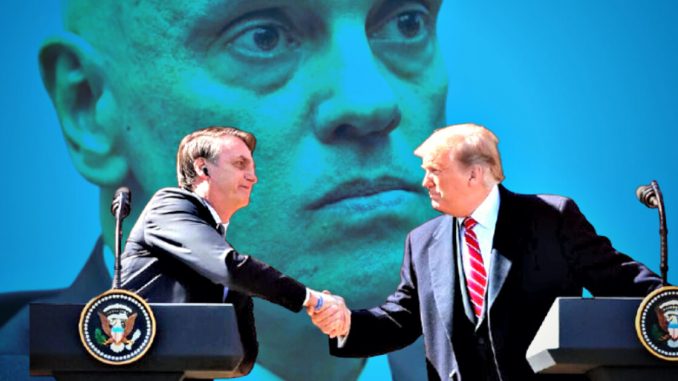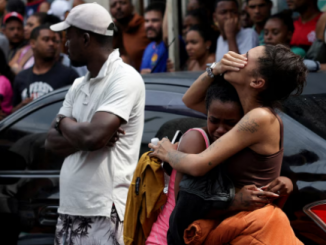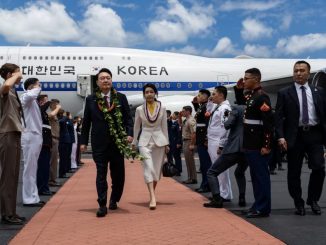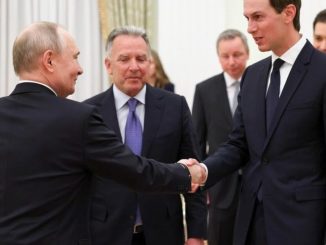
Published July 19, 2025
A deepening political crisis is shaking the foundations of Brazil’s democracy and drawing sharp rebukes from Washington. In a stunning escalation, Brazil’s top court has imposed strict legal restraints on former President Jair Bolsonaro—including a curfew, electronic ankle monitor, and a ban on social media—accusing him of plotting a coup and colluding with foreign actors, including former U.S. President Donald Trump. In retaliation, the United States has revoked visas of key Brazilian justices, including the powerful and controversial Supreme Court figure Alexandre de Moraes. As accusations of political persecution and judicial overreach mount, tensions between Brasília and Washington are boiling over, with economic consequences looming and international norms hanging in the balance.
🇧🇷 The Legal Clampdown on Bolsonaro
On July 18–19, 2025, Brazil’s Supreme Federal Court, under Justice Alexandre de Moraes, took decisive action against former President Jair Bolsonaro—who’s currently on trial for allegedly orchestrating a coup to block Lula’s 2023 inauguration. Police raided his home, party headquarters, and confiscated cash and personal devices. They also imposed a nighttime curfew, banned him from social media and embassy contact, and fitted him with an electronic ankle monitor amid concerns he might flee.
Bolsonaro condemned the measures as “supreme humiliation,” insisting he has no plans to flee. The court cited a “concrete possibility” of escape when justifying restrictions.
⚖️ Accusations: Seeking Trump’s Help and Undermining Sovereignty
Judge Moraes alleges Bolsonaro attempted to enlist then-U.S. President Trump to intervene in his legal case—a move seen as attacking Brazilian sovereignty El País+9Reuters+9Al Jazeera+9. Bolsonaro denies wrongdoing, painting the proceedings as politically motivated.
🇺🇸 U.S. Retaliation: Visas Revoked and Tariffs Threatened
In a dramatic diplomatic response, U.S. Secretary of State Marco Rubio announced visa restrictions on Justice Moraes, other Supreme Court justices, and their families—calling the court’s actions a “political witch‑hunt”.
Meanwhile, former President Trump spurred pressure by threatening a 50% tariff on Brazilian imports, accusing Brazil’s judiciary of “injustice” and urging an immediate end to Bolsonaro’s trial.
🌐 International and Domestic Fallout
-
Diplomatic Tensions: Lula’s government denounced the U.S. move as undue interference, calling the trade threats “unacceptable blackmail”.
-
Judicial Independence at Stake: U.S. officials accuse Moraes of fostering an overly politicized judiciary, stepping beyond Brazil’s borders to censor .
-
Bolsonaro’s Defense Strategy: Bolsonaro’s son Eduardo is reportedly lobbying in the U.S. for sanctions against Moraes. Bolsonaro intends to regain diplomatic access and vows to meet Trump.
Take a look:

Here’s a personal letter to Bolsonaro:
And finally, the letter to socialist President Lula da Silva, announcing the 50% tariffs on the country, primpted in part by the fake ‘coup’ prosecution againt Bolsonaro.
“Dear Mr. President, I knew and dealt with former President Jair Bolsonaro, and respected him greatly, as did most other Leaders of Countries. The way that Brazil has treated former President Jair Bolsonaro, a Highly Respected Leader throughout the World during his Term, including by the United States, is an international disgrace. This Trial should not be taking place. It is a Witch Hunt that should end IMMEDIATELY! … Due in part to Brazil’s insidious attacks on Free Elections, and the fundamental Free Speech Rights of Americans (as lately illustrated by the Brazilian Supreme Court, which has issued hundreds of SECRET and UNLAWFUL Censorship Orders to U.S. Social Media Companies), I am announcing a 50% TARIFF on all Imports from Brazil, effective August 1, 2025.”
 Resulting Effects:
Resulting Effects:
The fallout from Brazil’s crackdown on former President Jair Bolsonaro and the U.S. response has triggered a wave of political, diplomatic, and economic consequences both domestically and internationally:
🇧🇷 Political Polarization in Brazil Deepens
The Supreme Court’s aggressive pursuit of Bolsonaro has sharply divided the nation. Supporters call it justice for alleged anti-democratic actions, while critics view it as judicial overreach designed to silence opposition. The unprecedented restrictions on a former head of state—including an ankle monitor and curfew—have galvanized Bolsonaro’s base, who now frame him as a political prisoner.
🇺🇸 U.S.–Brazil Relations Take a Nosedive
The U.S. government’s decision to revoke visas of Brazilian Supreme Court justices and their families has sparked a diplomatic standoff. Brazil’s current administration under President Lula da Silva condemned the move as foreign interference. The incident risks unraveling previously warm bilateral ties and could impact future cooperation on trade, defense, and environmental policy.
💼 Economic Threats and Investor Uncertainty
Former President Trump’s call for a 50% tariff on Brazilian imports has rattled financial markets and raised concerns over a potential trade war. Investors are watching closely, wary of instability in Latin America’s largest economy. Business confidence in Brazil is showing signs of strain, especially in industries reliant on U.S. trade.
🌐 Global Concerns About Judicial Independence
Legal scholars and international observers are divided: some see the Brazilian judiciary’s moves as a necessary step to uphold democratic norms post-2022 election unrest, while others warn that politically charged prosecutions erode the rule of law. The visa revocations by the U.S. further blur lines between justice and diplomacy, setting a precedent for how superpowers might weaponize travel restrictions in legal disputes.
🗳️ Implications for 2026 Elections
Bolsonaro’s legal entanglements could prevent him from running in the next presidential election—but the backlash might also energize his political movement. If restrictions are lifted or overturned, he could attempt a comeback, potentially reigniting a fierce ideological showdown.
 Bottom Line:
Bottom Line:
What began as a domestic legal battle in Brazil has now exploded into a high-stakes international confrontation, with profound implications for democracy, diplomacy, and global governance. As Bolsonaro’s future hangs in the balance, Brazil’s judiciary faces scrutiny for its unprecedented actions—while the U.S. finds itself in the rare position of sanctioning judges from a fellow democracy.
At the heart of the crisis lies a question that resonates far beyond Brazil: when does the pursuit of justice cross into political persecution? The answer, for now, depends on where you stand. But one thing is clear—this standoff is no longer just about Bolsonaro. It’s about the fragile line between power and principle in a world increasingly shaped by political polarization and cross-border pressure.
As both nations brace for what comes next, the outcome could redefine not only U.S.–Brazil relations but also the global playbook for how democracies deal with dissent—and each other.






Be the first to comment